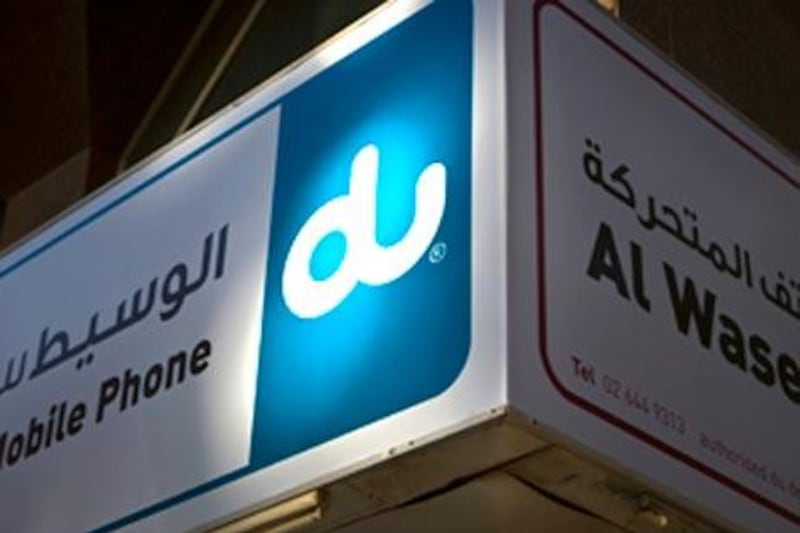The mobile network, du, added 628,000 new customers in the final three months of last year, thanks in part to a pricing strategy that undercut the competition. It was the most profitable quarter in du's two-year history, and also the most successful in terms of new customers, narrowly beating the final three months of 2007, when the company added 620,000 subscribers. The company now has 3.3 million subscribers. The rush of new customers - more than 2.5 times as many as added by its competitor, Etisalat, in the same period - helped du record its first profitable year. After losses in the first half of last year, the company announced a yearly profit of Dh8 million (US$2.1m), while fourth-quarter profit stood at Dh78m. The mobile market in the Emirates is maturing and the number of new subscribers is expected to decline this year, but du has taken an overwhelming lead in the market for new customers. More than 70 per cent of all new customers in the final quarter of last year chose the company ahead of Etisalat. "It is now clear that we have the lion's share of new subscribers, and that is a very encouraging sign," said Osman Sultan, the du chief executive. The company holds almost a third of the nation's 10.6 million mobile lines. But its subscriber base is growing faster than revenues, suggesting that its customers are spending less. "It is not a secret that in the beginning we attracted a population that is more price sensitive," Mr Sultan said. "But more and more we are finding that people, regardless of the price headline, see advantage in the whole experience we offer. That number is expanding, but not as fast as the subscriber base." The company's average revenue per user (ARPU), a key telecom industry measure, is declining as a result of this growth. "Our challenge is now to convince as many people as possible that you come to us and have a fully fledged network and a full experience," he said. "But there is a natural erosion of our ARPU by this growth in the subscriber base." In mid-2008, du announced a deal to provide free mobile lines to new labourers and construction workers arriving in Dubai. That system is now active, and has attracted a volume of customers "in the low hundreds of thousands, certainly less than 500,000", Mr Sultan said. While the company's core calling prices remain largely in line with Etisalat, it targets what it calls the "budget conscious" segment of the market through special discount offers. Last year, it cut the price charged for new connections, signed new deals to offer cheaper roaming fees for its customers travelling abroad and expanded an offer where customers can choose a group of numbers that can be called at a reduced rate. That the growth of new customers coincided with a tougher economic outlook was no coincidence, according to Mr Sultan. "We have a value for money headline, we have been attracting budget-sensitive customers since the beginning, along with others who were attracted by the other dimensions of what we were offering," he said. "Now, I think more and more people are budget sensitive, and when they see the type of network we have today, the experience we offer today - our story is that we bring value for money, and we will continue to do that." tgara@thenational.ae
Boom in du subscribers
The company breaks out of the red with its first yearly profit, and pushes its total subscriber base to 3.3 million.

Editor's picks
More from the national




